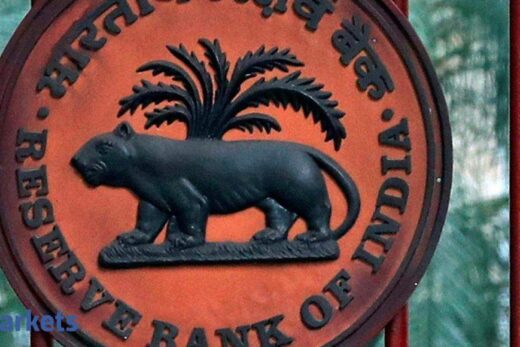Shrinking margins of companies, elevated inflation and a slow vaccination rate initially were also unable to halt a bull market that has run amok for 18 months straight. The benchmark equity indices are still to see a more than 10 per cent correction from their highs.
The influx of new money from first-time retail investors supplemented by domestic institutional investors buying every dip has helped limit downside in the market and aid its rise.
The decoupling has resulted in concerns over valuations of the Indian stock market being too high to be healthy. Nifty50’s one-year and two-year forward PE multiples are the highest among emerging market economies.
Today, these concerns were also voiced by the Reserve Bank of India itself. “Episodic shifts in risk appetite have rendered equity markets frothy with stretched valuations,” the central bank said in its Monetary Policy Report released today.
The burgeoning optimism for the Indian stock market is also reflected in the rapid decline in the equity risk premia for India. The equity risk premia for India declined to 3.2 per cent in September from 6.3 per cent in March 2020, the RBI report said.
The central bank also referred to activities in the initial public market as “exuberance”. So far in 2021-22, 22 IPOs have been listed, mobilising Rs 46,316 crore as against Rs 1,798 crore in the corresponding period last year.
Analysts have suggested that the market requires a healthy correction going ahead to reduce the froth building up in various pockets. “There is a bit of a speculative element also which has led to some froth getting accumulated,” Vinit Sambre, head of equities and fund manager at DSP Mutual Fund, told ETNow in a recent interview.



